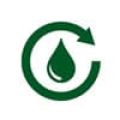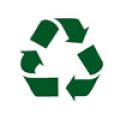Advanced technology and environmental protection
The attention given to environmental preservation and respect for eco-friendly concepts have always been highly valued at Sichenia. In this context, the Company has always stood out by being ahead of the times and demonstrating, as far back as the the seventies, its sensitivity to environmental policies. Moreover, Sichenia was among the first companies to introduce filtering systems of the fumes at its production sites. It’s important to highlight that the inside the air filters used to reduce to a minimum the air pollution levels, both inside and outside the factory, a “calcium hydrate” is applied which is then in turn reused during the production process.

Raw Materials
Sichenia carries out a rigorous selection of suppliers who provide certified natural raw materials and clay from quarries that are subject to precautionary and recovery processes as established by relevant laws.
When mixing its products, a percentage of feldspar (F60/30) is used. This raw material is derived entirely from the recovery of scraps of “historical” granite quarries from Verbania and is certified as a “pre-consumer” material and recycled 100 %, defined by point 7.8.1.1 c, UNI EN ISO 14021.
Sichenia also uses only lead-free glazes and, via the department responsible for their preparation, scrupulous checks are carried out to establish that there is no type of radioactivity.
Most of the production is colored porcelain stoneware in mass with very low use of glazes, which are replaced by natural colorants. These, in fact, allow to obtain an excellent result both from an aesthetic point of view and in relation to the reduction of colorants from industrial processes.

“Closed circuit” reuse
The clays, colors, pigments and excess glazes are not discarded. Rather, they are drained and, consequently, re-used in the base of the product’s manufacturing. All water used for these purposes is not channeled into municipal wastewater; it is retrieved through a dedicated purifier and reused in the production cycle.

Thermal/energetic surplus recovery
Since the consumption of energy is the most expensive factor in the ceramic industry, Sichenia has adopted an effective system that minimizes the use of this important resource, thus increasing efficiency during the production phases.
This system, called “Cogeneration”, enables to use 95% of the actual energy, as opposed to 30% of normal performance.

Complete recycling of production waste
Sichenia reuses all broken tiles and production waste. The output is recycled and added to the base of the product mix. This process does not affect the technical characteristics nor the aesthetics of the tiles, rather it allows for the recovery of otherwise unused materials.
The packaging solutions too, which are made for protective purposes (i.e. cardboard, wooden pallets and even plastic casings) are recyclable.
Sichenia is part of major national and international organizations (“CONAI”, “INTERSEROH” and “EVA”) committed to the complete recycling of all packaging materials.

EDP (ENVIRONMENTAL PRODUCT DECLARATION)
The EDP (Environmental Product Declaration) is a certified and voluntary environmental product declaration that certifies the environmental impacts of the product life cycle to which it refers. It is a useful tool in choosing products with an environmental value, contributing to the achievement of credits for LEED certification.
Sichenia, with the other main producers in the ceramic sector, took part in the study of the sectoral average EPD sponsored by Confindustria Ceramica.